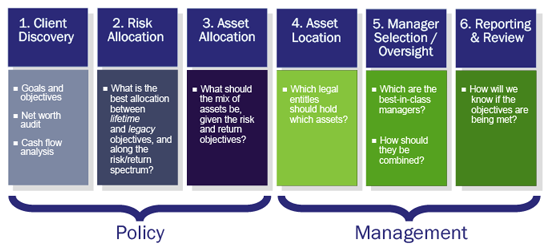Investment Policy Statement
Post on: 16 Март, 2015 No Comment

Retirement Plan Sponsor Best Practices
Non-profit organizations have a minefield of details to navigate and regulations to adhere to when they sponsor a retirement plan. To help non-profits understand and manage their legal responsibilities as plan sponsors, Will Berry of Wealth Planning Resources, LLC shares some important best practices and a warning about increased scrutiny being placed on fee disclosure.
What are some issues you see that should be a concern for retirement plan sponsors?
Too often we find that plan sponsors do not necessarily know who is a fiduciary, and, if they do, they do not necessarily know what their responsibilities as fiduciaries are. Often there is no clear process in place to manage these responsibilities. We come across many executive directors and human resources professionals at non-profits trying to juggle the many responsibilities of a fiduciary, even though it is not an area of their expertise and they are busy with many other non-retirement plan responsibilities.
What are some best practices for retirement plans sponsors?
1. Know the laws and rules that govern your plan as dictated by ERISA and your plan document.
2. Every plan should have an IPS (Investment Policy Statement). An IPS should spell out the process of managing your fiduciary responsibility. Questions that should be answered by the IPS include but are not limited to:
- What are the objectives of the plan?
- Who are the parties to the plan and what are their roles?
- Which asset classes/types of investments will be available?
- How are plan investments monitored and benchmarked?
- What is the process for employee education?
- How are services and fees by service providers monitored?

3. Always act in the best interest of plan participants. I believe that participants know when a plan is well managed and the employer has their best interests at heart.
4. With the help of your service providers, make tools and information available that can help participants make good decisions.
5. Avoid conflicts of interest.
6. Make decisions using the Prudent Man Rule. In other words, act with care and due diligence that a prudent person would exhibit in a similar situation.
7. Be diligent and document all that you do. Document the process that you go through, the decisions you make and the criteria you use to get to decisions. You do not have to be an expert in all areas, but review capabilities and expertise of those experts whose advice you rely on to guide your decisions.
Are there any hot topics that we should be aware of?
There is a great amount of scrutiny placed on fee disclosure right now. I would suggest plan administrators first make sure they have a detailed understanding of all plan fees and expenses. Secondly, they should work with their service providers to implement a plan on how and when fees will be disclosed to participants in a way that will be compliant with ERISA rule 404(a)(5). Remember to always document what you did and when you did it.
Will Berry’s firm, Wealth Planning Resources, works with plan sponsors to help implement and monitor retirement plans as well as to provide employee education. He graduated from James Madison University in 1999 with a BBA in Finance. His professional certifications include Chartered Financial Consultant (ChFC) and Certified Life Underwriter (CLU), and the Accredited Investment Fiduciary ® (AIF ® ) Designation.
Shannon Crowley is a manager in BlumShapiro’s Accounting and Auditing Department. based in Quincy, Massachusetts. Shannon oversees audit engagements and is responsible for engagement planning, staff supervision and coordination with client personnel to ensure successful completion of projects. Shannon has worked with clients in a variety of industries, including healthcare, higher education, non-profit, manufacturing and distribution.














